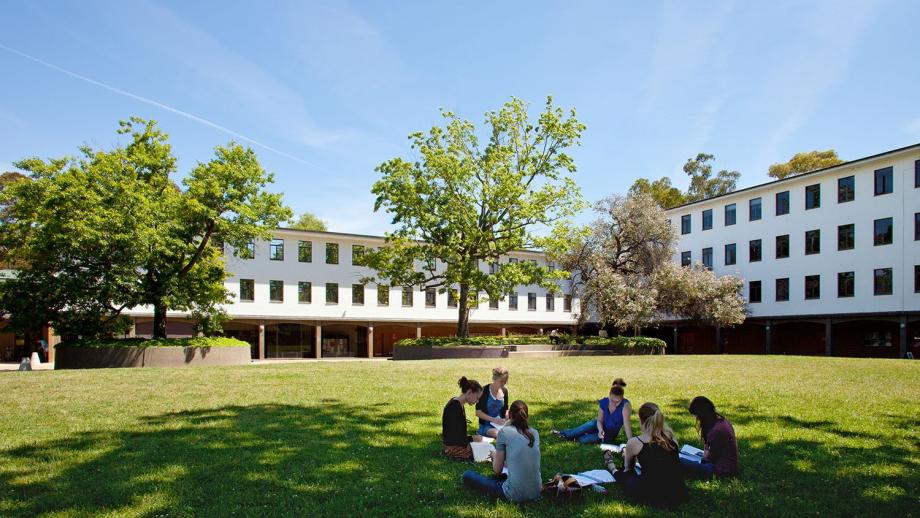The ANU College of Law hopes to run a trial of course representatives in the first semester of 2018.
As a result of ongoing work between the ANU Students’ Association president, James Connolly, College of Law repre- sentatives, Sammy Woodforde and Ellie Dowling, and the College of Law, an offi- cial trial is planned for next year, proba- bly covering undergraduate compulsory courses.
Connolly told Woroni that course rep- resentatives are the ‘foundation stone of student advocacy’, allowing issues to be addressed at a localised level and playing an ‘integral role’ in improving course quality.
Unlike the Student Experience of Learn- ing & Teaching (SELT) surveys, the changes for which course representa- tives advocate provide ongoing feedback throughout the course, benefitting the current cohort of students.
Woroni understands that the College of Law does not have a course representa- tive program because ANUSA and the Law Students’ Society have previously felt able to address the advocacy needs of law students.
Woodforde said, however, that students have been unwilling to go to college rep- resentatives with smaller issues.
‘[Course representatives are] a good mechanism for being able to raise non-major issues that could be sorted with an email and a coffee,’ she said.
Connolly submitted a memorandum to the College of Law’s Associate Dean (Education), Wayne Morgan, in June, detailing best practice for a course representative program. ANUSA’s suggestions for the program were based on the structures in place in the Joint Colleges of Science, and College of Engineering and Computer Science.
The memorandum recommends that the positions are clearly publicised within a course, that course represen- tatives be elected, and that they receive training for their position. Course convenors are advised on how to actively respond to feedback.
Both Woodforde and Connolly emphasised the importance of clear support structures to allow a course representative program to be constructive.
‘Course Representatives, when empow- ered to be effective advocates, are an important component of teaching and learning quality assurance,’ the memo- randum reads.
The changes are expected to free college representatives to ‘focus on college-wide or systemic issues, and proactive proj- ects,’ Connolly explained, noting that the role of college representative was flexible enough to have adapted to work with the Law Students’ Society in the past.
Woodforde, however, pointed out the challenges with the change. As course representatives will not be part of a par- ticular ANUSA body, finding ‘the line’ in ANUSA-course representative rela- tions will require work.
‘We don’t want to overstep our boundar- ies, but we want to support course repre- sentatives,’ Woodforde said.
Despite sentiment among some law students and staff that course representatives remain unnecessary, Woodforde said that the College of Law has been very involved in and supportive of the process.
She said that many course convenors wanted better student feedback process- es, and the College of Law was interested in providing more professional develop- ment opportunities for staff.
This semester an unofficial course representative trial has been run in LAWS2250 (International Law) at the initiative of the College of Law. One student in the course said that she was ‘shocked law doesn’t have course reps’, and thought the concept was ‘amazing’.
However, she felt the trial in Interna- tional Law has not been particularly effective, because of a lack of accessible details for the course representative.
Woodforde said that the development of course representatives has been a slow process and was, at this stage, ‘a matter of keeping on going.’
Both she and Connolly hope that the development of best practice guidelines will have flow-on effects to the rest of the university. The College of Business and Economics does not have course representatives, and Connolly said that the Colleges of Asia and the Pacific, and Arts and Social Sciences could benefit from course representative reform, ‘to ensure there is more consistent practice.’
He added that that if the University is serious about student representation, it should adopt a set of basic principles for course representatives across the university, within the framework of its recent commitment to student partnership.
We acknowledge the Ngunnawal and Ngambri people, who are the Traditional Custodians of the land on which Woroni, Woroni Radio and Woroni TV are created, edited, published, printed and distributed. We pay our respects to Elders past and present. We acknowledge that the name Woroni was taken from the Wadi Wadi Nation without permission, and we are striving to do better for future reconciliation.
